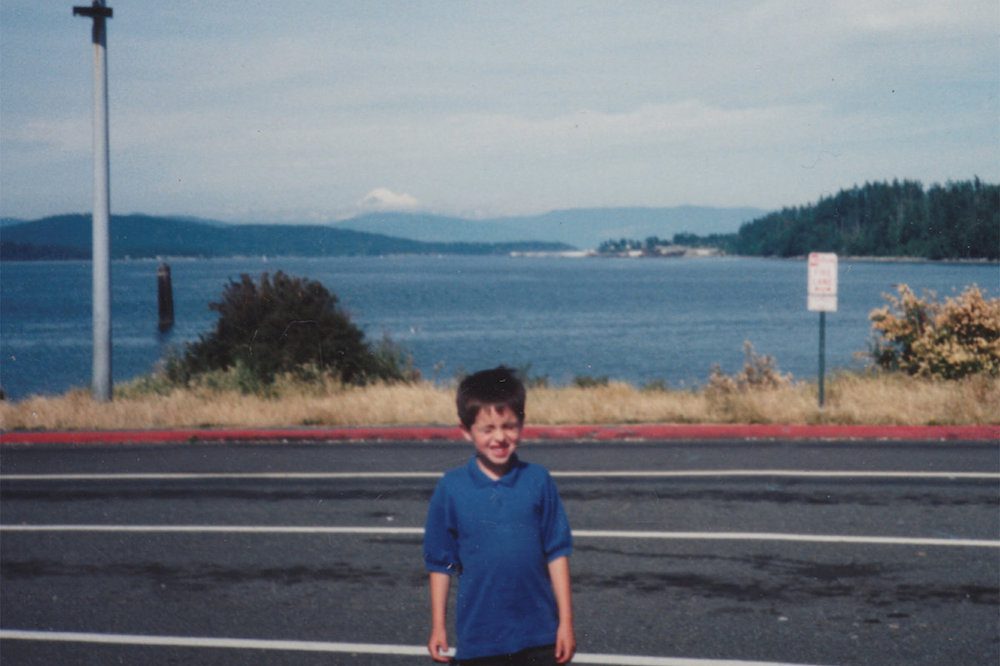

Katsy Pline has made a folk album for the apocalypse.
Or, more accurately, a folk-rock-syth album for the apocalypse, like Pline was watching fiery destruction from on high, fingers smashing the keys of an electric piano while warbling over a lost love. If you want another song to add to your apocalypse playlist (I know you have one, whether it be on Spotify, Soundcloud, or scribbled inside the journal you started on day six) look no further than the closing song on Pline’s new LP, In This Time of Dying.
The album was released on March 15th, so no worries, dear reader —Pline may not so much be prophetic as much as intuitive, perhaps the marker of any good folk singer. Don’t they always seem to have a backlog of completed albums for every chapter of your life, like your own personal Greek Chorus?
It’s appropriate, then, that album closer “How Long Must This Go On” actually has one, or something like it. In many ways, it’s the most old school song on the LP, but even the most spaced-out listener couldn’t miss its anachronistic opening line: “Woke up this morning/was all alone/rolled on over/and I checked my phone/well I’m wonderin’/how long must this go on.” The almost nastily relevant lyrics are proceeded by far-flung whistles and claps, ghosts of the crowds we find ourselves missing, if not double ghosts of some late-’60s summer music showcase it would be easy to imagine Katsy Pline dropping into via wormhole, without anyone giving a second glance.
The album has sprinklings of many old favorites, from the OG British Invasion boybands to Gene Clark, but with a distinct penchant for synth and distortion that can only be attributed to Kline’s past musical iteration as one-third of Bourgeoisie Speedball, a experimental group who would “[render] movement sonorous” by transforming sounds of Bay Area protests into strange tidbits of tracks.
“Wipe the Years,” another standout track, leans into doo-wop with its backing chorus of ahhs, but most strongly reminded me of one of my all-time ’60s favorites, Herman’s Hermits. As Pline pleads for someone to “please wipe these [memories] from my mind,” the little distorting affect on “please” and record-scratch repeats recall Peter Noone’s lovelorn vocals at the end of Hermits classic “No Milk Today.”
Pline was deliberate with this LP — despite the utter timeliness of the album’s sentiments, the arrangements (including any non-diagetic sounds) are carefully-considered vintage, like Pline runs a sonic period store stacked with white peasant tops and a rust-colored a-line skirts nestled carefully alongside slashes of ’80s braggadocio — there’s a lighting-stripe vest! There’s a satin belt!
But like I said — carefully. Pline may be a veteran of discordance, but the dashes of electronic affects and synths never feel tacked on or musically arrogant (you’ll listen and you’ll like it!). Instead, they feel like what would have been a natural progression for the folk bands of the ’60s and ’70s if such effects had been more widely used and respected. Some may argue that no folk-rock band of old would touch a modern synth with a ten-foot pole, but what truly is more off-the-beaten-path than the ability to distort your voice to reflect the cacophony of your own feelings?
The only time this strategy loses effectiveness is on “She Was a Friend of Mine,” a true folk lament about the death of a fringes-of-society person in Pline’s life. Pline’s voice is strong enough to stand alone, here or otherwise, and in such an otherwise stripped-down arrangement, the electronic aspects end up being a distraction.
“Crying in the Sun” brings the album back to full force, not only because of yet another crystal-ball lyric (“mask upon my face and eyes/algae blooms and fish rots seaside”), but because of utter atmosphere. The sun has always been its own character in folk and rock as much as “this town” is to pop-punk. This song posits it as some last bastion of the softest and gentlest aspect of society, a final pat on the cheek as Pline asks “Will I ever leave this place/or will I always be crying in the sun?”
Take it, at least for now, as less of a depressing mandate and more like a piece of advice: go outside, feel the sun on your face. Just stay in your own backyard.




